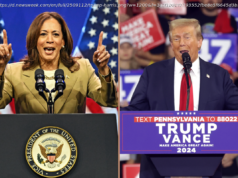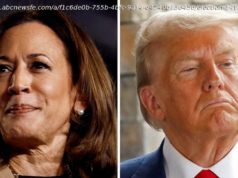Attorneys for Trump sent “cease-and-desist” letters to Bannon and to the book’s publisher, Henry Holt & Co. The letter to Bannon demanded that he…
Attorneys for Trump sent “cease-and-desist” letters to Bannon and to the book’s publisher, Henry Holt & Co. The letter to Bannon demanded that he stop violating the confidentiality agreement he signed when he became an employee of the Trump campaign in August 2016. The clear implication of such a demand, however, is that Bannon is telling the truth in the comments quoted by Wolff.
The letter to Holt demanded that the book—already printed and sent to bookstores—should not be made available for sale. In response, the publisher moved up the date for general sale from January 9 to this morning, Friday, January 5. The book is already number one in presale orders in the US market, according to Amazon, and Trump’s public attacks assure it wide circulation.
Bannon responded in a conciliatory fashion to Trump’s diatribe, praising Trump’s political record during an appearance on his Breitbart News radio program, and telling a caller that he continued to support the president. Despite such reassurances, there is no question that the new book has dealt a significant political blow to the White House, which Trump may not survive.
Opponents of Trump among congressional Democrats and Republicans and in the bulk of the corporate-controlled media seized on the book to give a new blast of publicity to the Russia investigation, which is largely driven by foreign policy differences within the US ruling elite.
Congressional opponents also cited the portrait of the president given by Wolff throughout the volume to support claims that Trump is mentally unfit and could be subject to removal from office, either through impeachment or use of the 25th Amendment to the Constitution.
Such suggestions have nothing in common with the deep-seated opposition to the policies of the Trump administration in the working class, and among youth and immigrants. They reflect concerns in sections of the ruling elite, including both Democrats and a growing number of leading Republicans, that Trump’s erratic and provocative conduct will trigger a mass popular movement that would threaten the bourgeois order as a whole.
Bannon’s opposition to Trump has a somewhat different character from other factions of the ruling elite. He has long been identified with the project of building a mass fascist movement in the United States, and for a number of years has focused his efforts on transforming the Republican Party into an ultra-right nationalistic organization on the model of the French National Front or the Alternative for Germany.
Trump has rebuffed Bannon’s approach in favor of a full-scale embrace of tax cuts for corporations and the wealthy, and even cuts in the estate tax, while offering nothing to working people and targeting popular social programs like Medicare, Medicaid and Social Security for budget cuts.
It is noteworthy that the Wolff book, for which Bannon was the principal source, has gone to press only days after Trump signed the tax cut legislation into law.
Their current conflict by no means rules out a rapprochement between Trump and Bannon at some further stage, particularly in the event of the outbreak of social struggles in the United States where the White House may feel the need for a new round of populist demagogy.
That said, the Wolff book underscores not merely the “unfitness” of Donald Trump, but the unfitness of the entire class in whose interests he rules America.
What can be gleaned from the excerpts published so far is a portrait of a man who is profoundly, willfully ignorant about anything that does not touch directly on his own ability to make money and his own personal comfort: in other words, a figure quite representative of the worst traits of the American corporate elite.
Trump spends his entire day in phone calls with a narrow circle of cronies and watching cable television, interrupted by occasional meetings with his staff and cabinet, during most of which Trump talks and does not listen. In a particularly lacerating passage, Wolff writes:
“Here, arguably, was the central issue of the Trump presidency, informing every aspect of Trumpian policy and leadership: He didn’t process information in any conventional sense. He didn’t read. He didn’t really even skim. Some believed that for all practical purposes he was no more than semi-literate. He trusted his own expertise—no matter how paltry or irrelevant—more than anyone else’s. He was often confident, but he was just as often paralyzed, less a savant than a figure of sputtering and dangerous insecurities, whose instinctive response was to lash out and behave as if his gut, however confused, was in fact in some clear and forceful way telling him what to do.”
Trump’s supporters, particularly in Fox News, pointed to Wolff’s admission that many of the episodes he describes were based on conflicting accounts by rival White House aides, not on his direct observation. They have not explained what possessed Trump to approve the Wolff book, which he apparently expected to be a glowing portrait of the first 100 days of the new administration.
Comment on Global Research Articles on our Facebook page
Become a Member of Global Research






